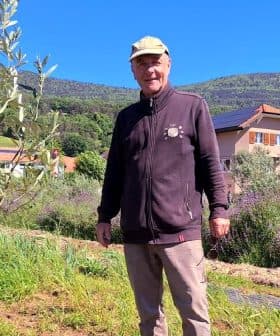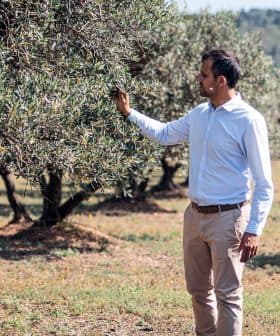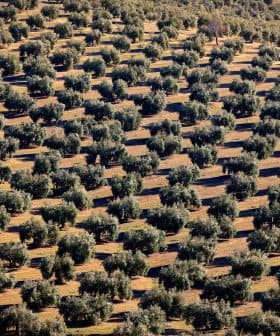Olive Trees Can Help Beat Climate Change
At a three-day conference, the International Olive Council emphasized the role olive farming can play in efforts to reach global net zero emissions.
 Stara Maslina in Budva, Montenegro
Stara Maslina in Budva, Montenegro  6.9K reads
6.9K readsThe International Olive Council has gathered evidence suggesting that olive groves could be a crucial tool in combating climate change, as over 300 experts from 30 countries met in Madrid to discuss the role of olive trees in addressing climate change, focusing on the olive tree’s natural ability to capture and store carbon dioxide. Olive groves serve as significant carbon sinks, with the potential to remove 47 million tons of carbon dioxide from the atmosphere annually, and experts are working to ensure that the olive oil sector gains recognition in the voluntary carbon credit market, allowing farmers to earn additional income through the sale of carbon credits.
The idea that the olive tree could be a crucial tool in combating climate change may seem far-fetched. Still, the International Olive Council (IOC) has gathered evidence suggesting just that.
Over 300 experts, including scientists, farmers, private companies and policymakers from 30 countries, met in Madrid in mid-October to discuss the role of olive groves in addressing climate change.
It is the natural behavior of the olive tree to capture carbon dioxide in the atmosphere, absorb it, and then store it firstly in the biomass and finally, into the soil in a permanent way.
Jaime Lillo, the IOC’s deputy executive director who will take the helm of the intergovernmental organization in 2024, told attendees on the first day that developing the role of olive groves as a potent tool to mitigate the impacts of climate change will be a central focus of the IOC during his mandate.
See Also:Olive Trees Combat Air Pollution, New Research Shows“It is the natural behavior of the olive tree to capture carbon dioxide in the atmosphere, absorb it, and then store it firstly in the biomass and finally, into the soil in a permanent way,” Juan Antonio Polo Palomino, the head of the IOC’s olive oil technology and environment department, told Olive Oil Times.
As a result, olive groves serve as significant carbon sinks. According to IOC data, olive groves spanning 10.5 million hectares globally can potentially remove 47 million tons of carbon dioxide from the atmosphere annually.
“Thus, taking into account the total life cycle of olive oil, it can be maintained that the production of one kilogram of olive oil removes 10 kilograms of carbon dioxide from the atmosphere,” the IOC concluded in a 2017 study.
Olive oil is already globally appreciated for its taste and nutritional properties. Its added positive impact on the environment could make the sector even more attractive to consumers.
However, few know about the crop’s positive environmental impact. “Consumers must be made aware that olive oil is a healthy fat and the most environmentally friendly fat, promoting sustainable and environmentally friendly consumption,” Polo Palomino said.
Experts at the workshop have timed their findings to coincide with the European Commission’s framework for voluntary credit carbon markets, which relies on three types of carbon removals: carbon storage in long-lasting products and materials, permanent carbon storage and carbon farming.
According to Polo Palomino, experts at the IOC have demonstrated that the olive tree, which falls under the third European Commission pillar of carbon removals, is a carbon sink, and they stand ready to work alongside the commission to ensure that the framework recognizes the olive oil sector’s fundamental role.
Moreover, “we can improve on the olive tree’s natural ability to remove carbon from the atmosphere by supplementing it with sustainable agricultural practices,” he said.
According to Polo Palomino, farmers can implement waste collection and composting practices to improve their groves’ ability to sequester carbon dioxide.
“Adding organic matter like leaves and waste from pruning back into the olive grove would improve the soil’s physical structure and mineral components,” he said. “In addition, there would be other beneficial side-effects for the soil’s health.”
“For example, while the olive tree’s natural ability to absorb carbon would function, increasing the organic matter in the soil improves its capacity to retain humidity, causing it to require less water and irrigation,” Polo Palomino added.
Experts at the IOC workshop view olive farming as an excellent opportunity for farmers to earn additional income.
“Not only would they earn income from the sale of olive oil, but also, given the positive impact on the environment, they could benefit from selling carbon credits on the voluntary carbon credit market,” Polo Palomino said.
“The olive grower should be seen as a guardian of a forest, and therefore, this extra income from carbon credits can economically recognize this important role,” he added.
However, the olive sector is not yet a part of the E.U. taxonomy for sustainable investment and, thus, does not qualify for the voluntary carbon credit market. The IOC and experts are working to gain recognition for the sector.
Share this article









